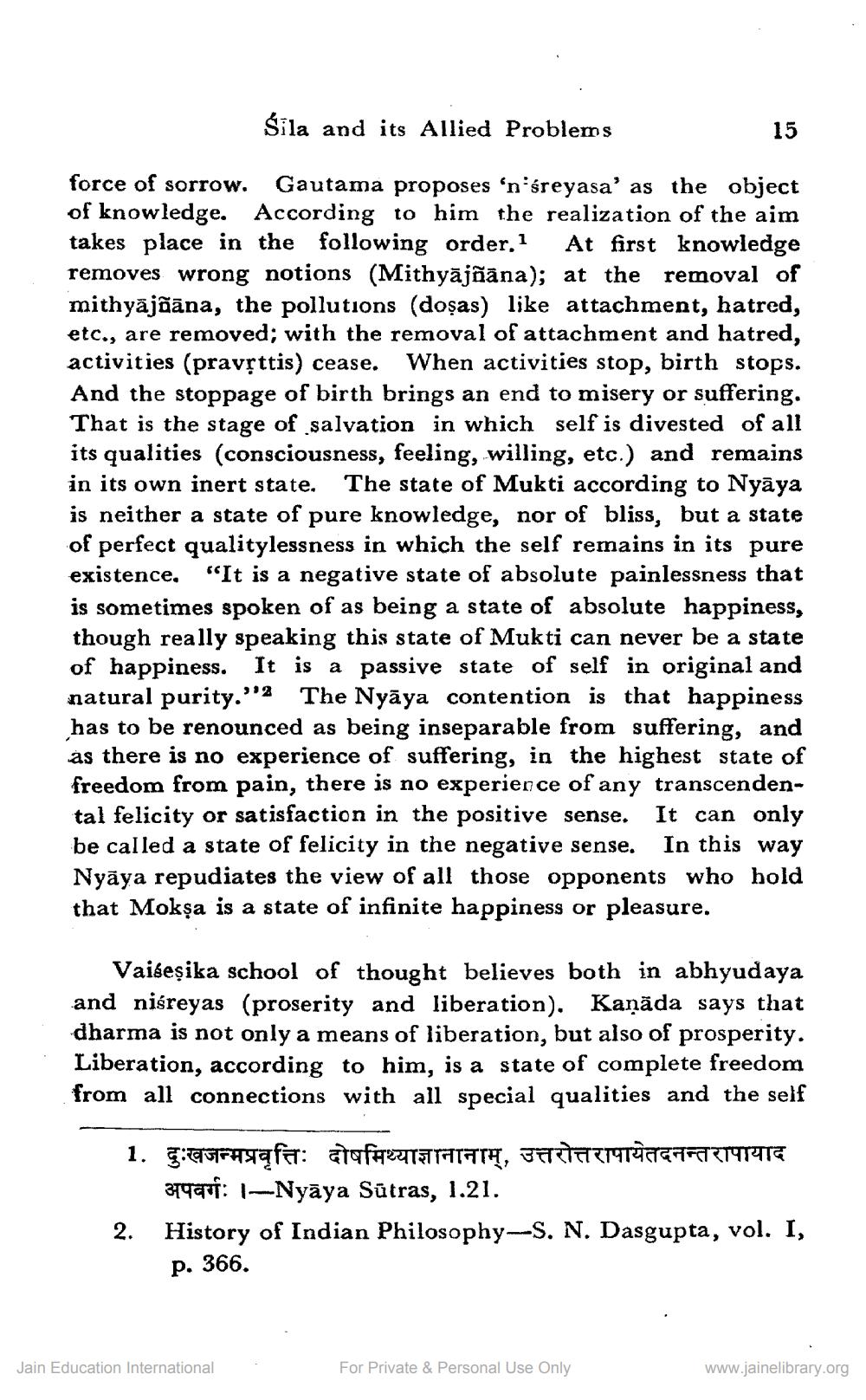________________
a and its Allied Problems
15
force of sorrow. Gautama proposes 'n'śreyasa' as the object of knowledge. According to him the realization of the aim takes place in the following order. At first knowledge removes wrong notions (Mithyājõāna); at the removal of mithyājāāna, the pollutions (dosas) like attachment, hatred, etc., are removed; with the removal of attachment and hatred, activities (pravsttis) cease. When activities stop, birth stops. And the stoppage of birth brings an end to misery or suffering. That is the stage of salvation in which self is divested of all its qualities (consciousness, feeling, willing, etc.) and remains in its own inert state. The state of Mukti according to Nyāya is neither a state of pure knowledge, nor of bliss, but a state of perfect qualitylessness in which the self remains in its pure existence. "It is a negative state of absolute painlessness that is sometimes spoken of as being a state of absolute happiness, though really speaking this state of Mukti can never be a state of happiness. It is a passive state of self in original and natural purity."2 The Nyāya contention is that happiness has to be renounced as being inseparable from suffering, and as there is no experience of suffering, in the highest state of freedom from pain, there is no experience of any transcendental felicity or satisfaction in the positive sense. It can only be called a state of felicity in the negative sense. In this way Nyāya repudiates the view of all those opponents who hold that Mokşa is a state of infinite happiness or pleasure.
Vaideșika school of thought believes both in abhyudaya and niśreyas (proserity and liberation). Kanāda says that dharma is not only a means of liberation, but also of prosperity. Liberation, according to him, is a state of complete freedom from all connections with all special qualities and the self
1. दुःखजन्मप्रवृत्तिः दोषमिथ्याज्ञानानाम्, उत्तरोत्तरापायेतदनन्तरापायाद
349901: 1Nyāya Sūtras, 1.21. 2. History of Indian Philosophy-S. N. Dasgupta, vol. I,
p. 366.
Jain Education International
For Private & Personal Use Only
www.jainelibrary.org




